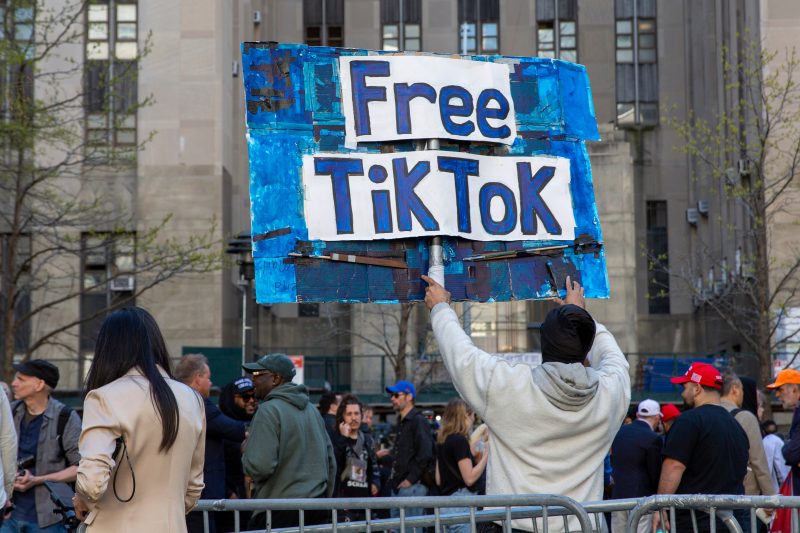In a surprising turn of events, former President Donald Trump has lately taken a different stance on the controversial social media app, TikTok. Initially, Trump was vocally opposed to TikTok’s influence, pushing for a ban on the app due to concerns over data privacy and national security threats allegedly posed by its Chinese parent company, ByteDance.
However, his recent accusations against President Joe Biden for potentially wanting to ban TikTok hint at a profound reversal of his previous position. This move has raised eyebrows and sparked discussions about the motives behind such a shift in opinion.
Trump’s anti-TikTok rhetoric during his presidency was well-documented, with his administration citing fears that the app could be used to gather sensitive data on American users and potentially compromise national security. These concerns, coupled with the complex geopolitical dynamics between the U.S. and China, led to intense scrutiny of TikTok’s operations and ultimately to Trump’s Executive Order seeking to ban the platform.
The situation took a dramatic turn when Trump hinted that Biden might be inclined to go a step further and implement a ban on TikTok—suggesting a policy stance that seemed to contradict Trump’s initial intentions. The sudden change in Trump’s narrative perplexed many observers, prompting speculation about the underlying motivations driving his accusations against Biden.
Some analysts argue that Trump’s newfound defense of TikTok may be motivated by political considerations rather than genuine concern for the platform’s users. By accusing Biden of wanting to ban TikTok, Trump may be attempting to position himself as a proponent of free speech and opponent of government overreach—a stance that could resonate with a significant segment of the population.
Alternatively, others suggest that Trump’s reversal on TikTok may be driven by broader strategic objectives, such as exerting influence over tech companies or leveraging the ongoing debate around social media regulation for his political advantage. Regardless of the true reasons behind Trump’s shift in stance, the situation highlights the complexities of navigating the intersection between technology, national security, and political interests in the digital age.
As the debate over TikTok continues to evolve, it remains to be seen how Biden’s administration will address the issue and whether Trump’s accusations will have any lasting impact on the fate of the app in the U.S. In the midst of these developments, the saga of TikTok serves as a compelling case study of the intricate dynamics shaping the digital landscape and the intertwined relationship between technology, regulation, and geopolitics in the 21st century.

